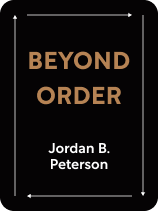

This article is an excerpt from the Shortform book guide to "Beyond Order" by Jordan Peterson. Shortform has the world's best summaries and analyses of books you should be reading.
Like this article? Sign up for a free trial here.
Do you grow more bitter the older you get? Do you justify bad behavior because life’s been hard on you?
According to Jordan Peterson, resentment, deceit, and arrogance can easily develop when you travel through life and face its hardships. However, he urges you to resist them and maintain your character as you deal with life’s challenges.
Read more to learn how to rise above suffering instead of letting it get the best of you.
Jordan Peterson on Resentment, Deceit, & Arrogance
According to Jordan Peterson, resentment, deceit, and arrogance aren’t the ways we should handle hardships, despite the temptation to go in that direction. He argues that we must all avoid slipping into immoral behavior due to frustration with life. If, instead, you choose courage and listen to your conscience, you’ll grow strong and able to navigate the trials of life. In contrast, acting immorally will lead you astray and distort your sense of right and wrong.
To explain his position, Peterson contends that chaos and evil are intrinsic parts of reality—therefore, we’ll all encounter difficulty, misfortune, and suffering in life. And given that life is difficult and often unfair, it’s all too easy to start cheating or cutting corners to get ahead. But though these immoral behaviors may yield short-term advantages, Peterson says that they’ll distort your sense of what is right, good, and true. Over time, you can even change the structure of your brain such that you lose the ability to act morally in any situation.
(Shortform note: Peterson’s point can apply to organizations as well as individuals. In Principles, Ray Dalio emphasizes the importance of “extreme honesty” to maintaining trust and effectiveness within an organization. In contrast to the short-term benefits of lying and cheating, being extremely honest—and extremely transparent—can make an organization more trusting and efficient, because nobody has to worry about unspoken conflicts, hidden schemes, or other shady behavior.)
Instead of acting immorally when you get frustrated, accept that reality features both great good and evil. Since you can’t escape either, choose to cultivate gratitude and courage. Thinking that you’ll escape suffering is arrogant, whereas accepting the bad and giving thanks for the good is realistic and keeps you afloat. Gratitude and courage prevent you from feeling victimized by the world, and they give you the strength to take responsibility and face up to the challenges in your life.
(Shortform note: Following from Peterson’s claim that you can distort your brain’s ability to sense right and wrong, research also supports the inverse claim: Individuals who practiced gratitude were found to have stronger neural activity in brain areas associated with moral cognition and decision-making. This suggests that by practicing gratitude and courage, you can train yourself to make better, more ethical decisions.)
Related Beyond Order Rules
Beyond Order Rule 11 says this: Do not allow yourself to become resentful, deceitful, or arrogant. This rule can be grouped together with two other rules from Peterson’s book. Each one fits the theme of personal well-being. Let’s take a quick look at the two related rules:
- Beyond Order Rule 8: Try to make one room in your home as beautiful as possible.
- Beyond Order Rule 12: Be grateful in spite of your suffering.

———End of Preview———
Like what you just read? Read the rest of the world's best book summary and analysis of Jordan Peterson's "Beyond Order" at Shortform.
Here's what you'll find in our full Beyond Order summary:
- A no-nonsense guide to navigating the chaos of our difficult world
- How and why you should listen to your conscience
- How to show up for life as fully as you can






